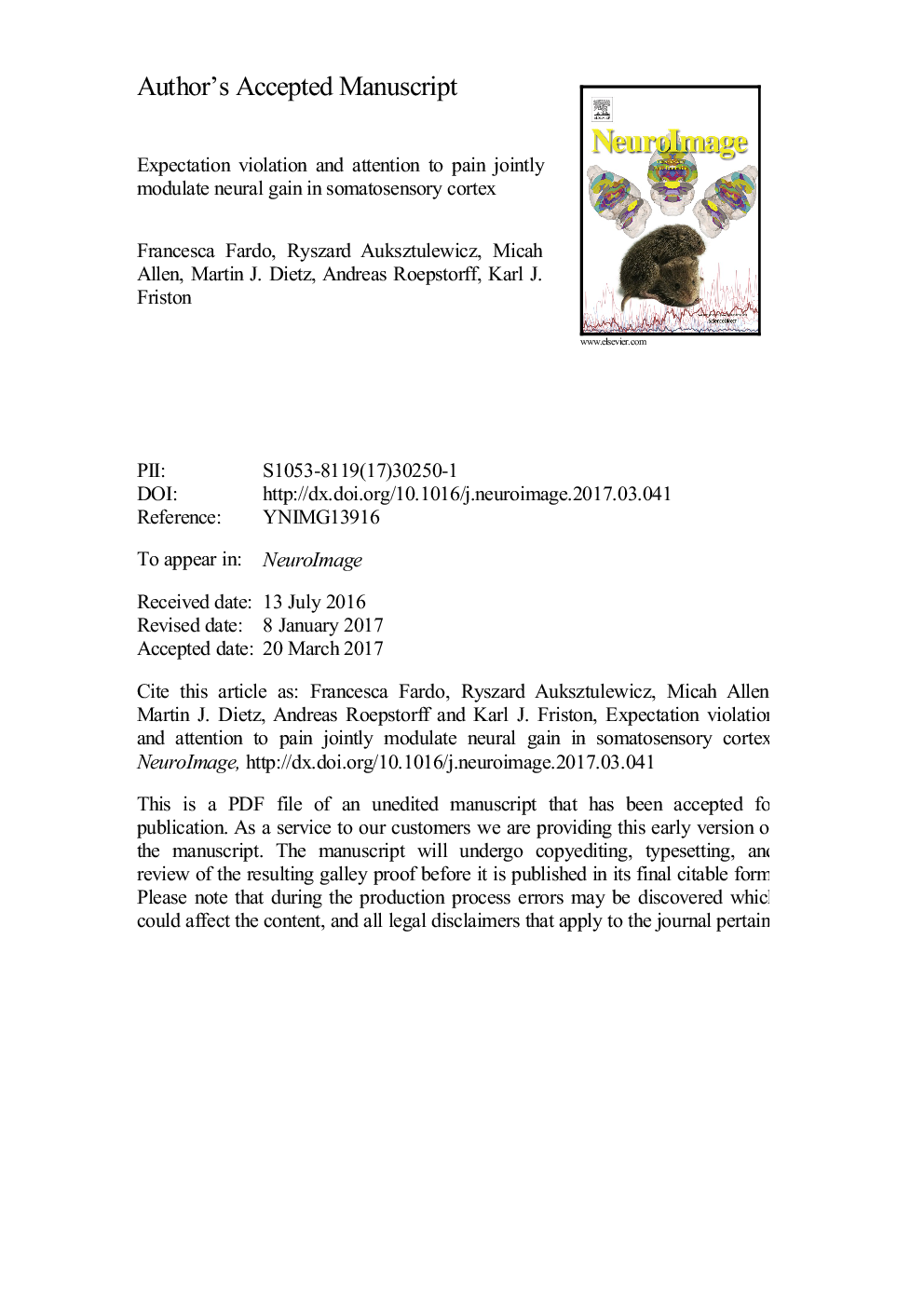ترجمه فارسی عنوان مقاله
نقص انتظار و توجه به درد به طور مشترک موجب افزایش جذب عصبی در قشر انحرافی می شود
عنوان انگلیسی
Expectation violation and attention to pain jointly modulate neural gain in somatosensory cortex
| کد مقاله | سال انتشار | تعداد صفحات مقاله انگلیسی |
|---|---|---|
| 128654 | 2017 | 44 صفحه PDF |
منبع

Publisher : Elsevier - Science Direct (الزویر - ساینس دایرکت)
Journal : NeuroImage, Volume 153, June 2017, Pages 109-121

